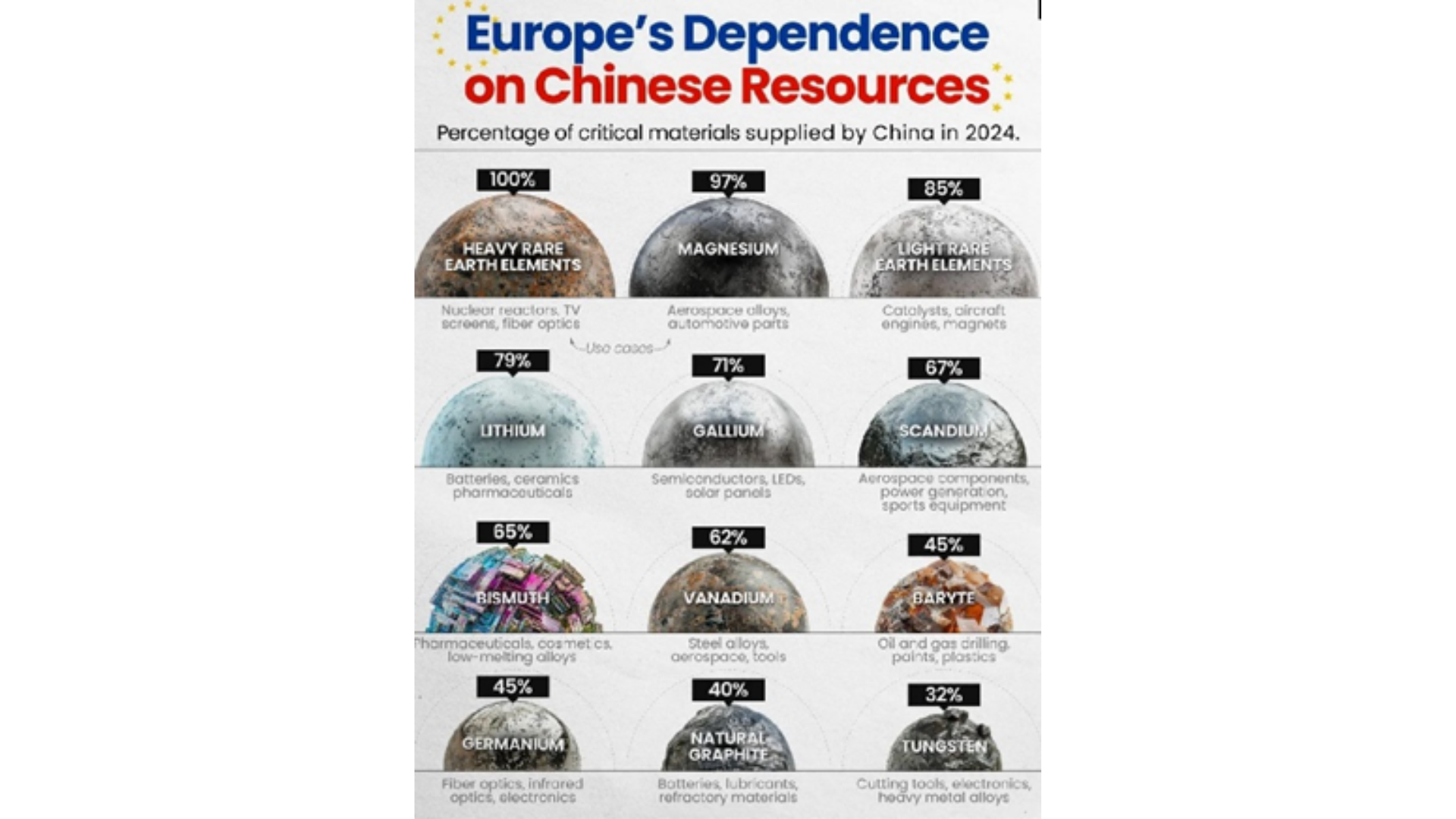Europe is actively discussing plans for militarization: strengthening its own defense industry, ramping up production of tanks, aircraft, drones, missiles, air defense systems, and satellites. But there is one little-discussed factor that becomes a silent yet serious bottleneck for these ambitions: critical dependence on supplies of rare earth elements (REEs) and strategic raw materials from China.

According to the data presented in the infographic (2024), Europe depends on Chinese supplies by:
This means that virtually every segment of Europe’s military, IT, and high-tech industries is directly linked to China. Why is this so critical?
The Importance of Rare Elements for Defense and IT
Why Is This Dependency Dangerous?
Any modern tank, fighter jet, drone, or missile is not just steel and armor — it’s a sophisticated mix of alloys, sensors, electronics, communication modules, batteries, and composites.
Without these elements:
This is why Russia has long classified its REE consumption data, and why the U.S. and Europe carefully analyze supply chains. In essence, China, by controlling global supplies of rare earths and other critical elements, effectively determines the military potential of any country.
China’s Role: The “Global Valve”
China has built this dominance over decades:
Now, if China decides to “turn off the tap,” Europe, the U.S., India, and even Japan could see the halt of production of precision weapons, electronics, satellite systems, and IT hardware.
Previously, Europe partially relied on supplies from Russia, Kazakhstan, and South Africa — but due to sanctions, geopolitics, and instability, these routes are now closed or weakened.
Europe’s Prospects: What Can Be Done?
Diversifying Supply Sources. The EU is investing in rare earth projects within Europe (e.g., Scandinavia, Portugal), but mining here is more expensive and tightly regulated for environmental reasons.
Reducing Dependence Through Recycling. Recycling (e.g., from old electronics) offers only a partial solution — current volumes are too small.
Building Alliances with Africa and Latin America. The EU is seeking long-term contracts with Niger, the DRC, Brazil — but this is a slow and complex process.
Cooperation with the U.S. and Japan. Creating joint reserves, strategic stockpiles, and shared projects for processing.
While Europe debates rearmament, China remains the invisible conductor behind these efforts. Without access to magnesium, scandium, lithium, gallium, and rare earth elements, Europe’s ambitions in defense and IT remain just plans on paper. Europe is already in a position of strategic dependence, which at any moment could turn into geopolitical vulnerability.
If tomorrow Beijing decides to limit supplies, Europe risks being left without the components needed for modern weapons systems — from drones to missiles. This is the key challenge the EU must acknowledge and address today.
* The Institute for Advanced International Studies (IAIS) does not take institutional positions on any issues; the views represented herein are those of the author(s) and do not necessarily reflect the views of the IAIS.